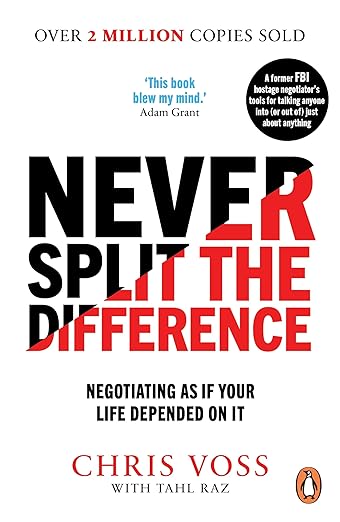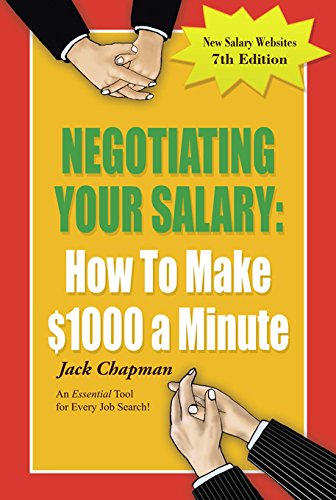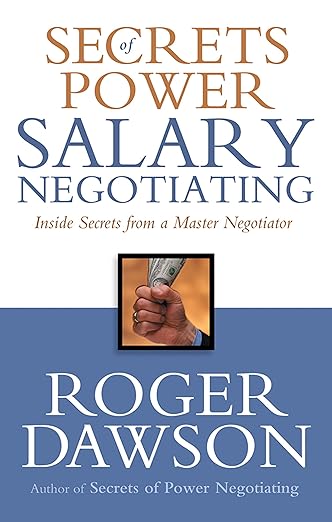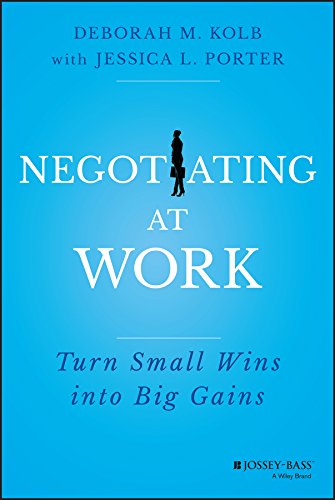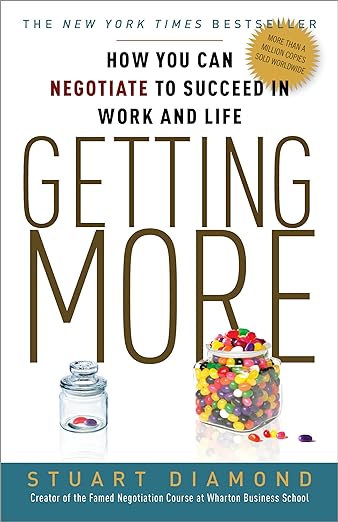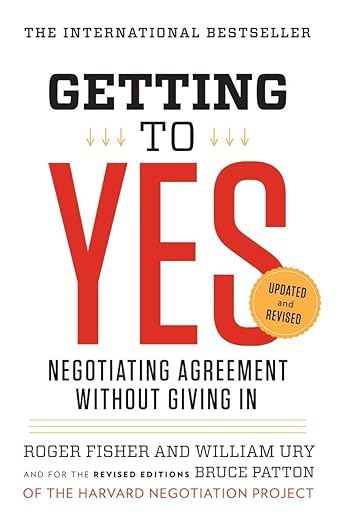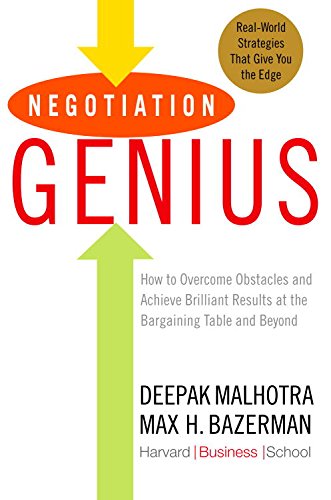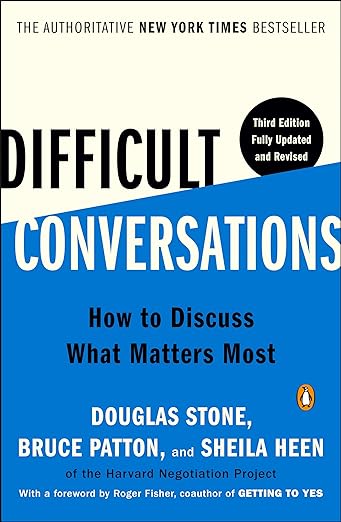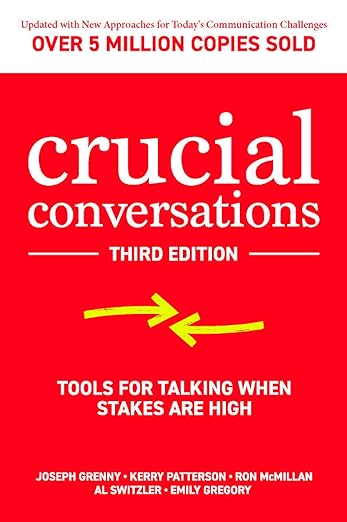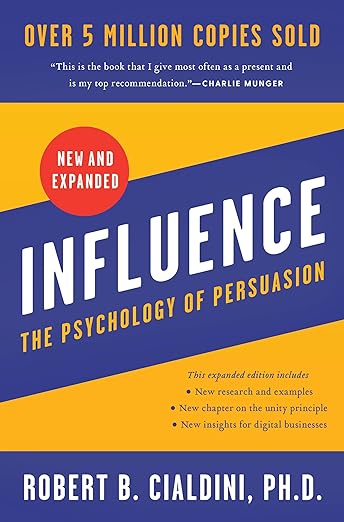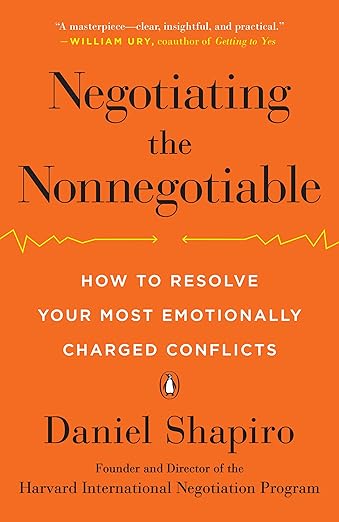Best books on salary negotiation and getting a raise
Negotiating an excellent salary is crucial because it sets the foundation for your long-term career satisfaction and financial security. Your initial salary negotiation not only determines your starting salary but also influences future raises and bonuses. Thus, it impacts your earning potential during your entire career. A well-negotiated salary boosts your morale, leading to greater motivation and productivity and reflecting your organizational value. However, effective salary negotiation requires preparation and strategy. What are the best books on salary negotiation?
How to apply the information of books on salary negotiation?
The best negotiation books often emphasize the importance of understanding the negotiation process and preparing well beforehand. It does not matter whether you apply for a PhD or postdoc position, tenure-track or full professorship, or an industry position – you need to prepare well.
This involves getting reliable information on the market rates and the industry standard of your potential position to understand whether the initial offer is acceptable or way below the market rate.
Before the first interview, ensure you have a specific number in mind for your target salary. This can be based on market data and the going rate for similar roles in your geographic area. Having a clear number helps you navigate the first offer and determine if there’s much wiggle room.
Understanding your current role and how it compares to similar positions in the industry is essential for successful negotiation. Conducting thorough market research will help you identify the market value for your role, ensuring that you have a solid foundation for your salary discussion.
By understanding the salary expectations for job candidates in your field, you can better navigate the hiring process and achieve a better deal. This knowledge ensures you are well-prepared for the salary negotiation process.
When preparing for a salary negotiation process, it is a good idea to analyze your track record and key skills and how they align with the job description in order to understand your value for a specific potential employer.
This helps prepare the application materials and present your achievements during the first conversation with a potential employer, and it sets the stage for discussing a reasonable salary.
You can prepare in a similar way, to justify a salary increase at your current position. An appropriate salary is vital for performing well.
You also need to prepare comprehensively for these conversations, apply emotional intelligence, and rely on deep-rooted psychological programs.
Discussing total compensation during the salary negotiation process, including a signing bonus, additional benefits like health benefits, vacation time, and professional development opportunities, is crucial. This comprehensive view ensures you make an informed decision about the offer.
When you receive an offer letter, take the time to review it thoroughly and consider any professional associations you belong to that might offer salary negotiation email templates or talking points. These resources can provide valuable insights for your next step.
If you feel that the first number presented is too low, counter with a specific number that reflects your experience level and the market value for the role. This approach shows you are serious about finding the right fit.
Get sufficient information about work hours, start date, and other factors that impact your overall work schedule. These different things can significantly influence your decision to accept the position.
Mastering these skills is a great way to navigate the job search process better and significantly enhance your ability to negotiate a better compensation package or relevant perks that meet your needs.
***
The Best Books on Salary Negotiation and Getting a Raise
The one, single best book on negotiation does not exist. You need to find two or three that fit best with your situation. The following negotiation books might help you negotiate a higher salary or better conditions. Please note: These are affiliate links.
Never Split the Difference: Negotiating As If Your Life Depended On It by Chris Voss
This is one of my favorite books on negotiation. Written by the former FBI’s lead international kidnapping negotiator, it offers practical techniques for high-stakes negotiations that can be applied to salary negotiations. Voss’s methods focus on psychological tactics and effective communication strategies to achieve the best possible outcome during any type of negotiation.
My friends laughed at me when I prepared a salary negotiation with a book of a former international hostage negotiator. However, several concepts are extremely useful salary negotiation strategies.
Negotiating Your Salary: How to Make $1,000 a Minute by Jack Chapman
This book provides a step-by-step guide to salary negotiation, covering everything from research and preparation to execution and follow-up. Chapman’s approach is practical and easy to follow, making it a valuable resource for anyone looking to maximize their earning potential.
Chapman outlines techniques for researching market rates (thus, the salary range you can expect), timing negotiations, and framing conversations to highlight your value before and during the interview process. He emphasizes the importance of preparation, confident communication, and understanding employer perspectives. With practical scripts and strategies, the book equips readers to negotiate raises, bonuses, and benefits effectively, ultimately boosting their earning potential significantly.
Secrets of Power Salary Negotiating by Roger Dawson
Dawson’s book provides step-by-step guidance for every stage of the negotiation process, including preparation for a job interview with a hiring manager, the initial job offer, counteroffers, and finalizing the deal. It provides practical advice and tactics that can be used to increase your salary at any stage of your career.
Ask For It: How Women Can Use the Power of Negotiation to Get What They Really Want by Linda Babcock and Sara Laschever
This book is particularly geared towards women but offers valuable advice for anyone looking to negotiate a raise. It combines research and real-world examples to show how negotiation skills can be used to achieve career advancement and higher pay.
Negotiating at Work: Turn Small Wins into Big Gains by Deborah M. Kolb and Jessica L. Porter
This book is the ultimate guide on the everyday negotiations that shape careers, including negotiating raises. It focuses on strategies for achieving incremental progress and gaining a competitive edge in professional settings.
The authors emphasize the power of small wins in building momentum and securing larger gains over time. They provide practical advice on recognizing opportunities for negotiation, leveraging everyday interactions, and addressing systemic barriers.
The book offers tools for advocating for oneself, managing power dynamics, and creating win-win scenarios. Through case studies and real-world examples, Kolb and Porter demonstrate how continuous, skillful negotiation can lead to significant career advancements and workplace improvements.
Getting More: How You Can Negotiate to Succeed in Work and Life by Stuart Diamond
Diamond presents practical negotiation tactics that can be applied in various scenarios, including salary discussions. He emphasizes the importance of valuing relationships and understanding the needs and perceptions of all parties involved.
The book provides practical strategies such as focusing on emotional intelligence, employing incremental steps, and looking beyond immediate demands to find creative solutions. Based on his series of experiences and years of experience, he shows how you can achieve better outcomes by prioritizing collaboration, empathy, and effective communication.
Getting to Yes: Negotiating Agreement Without Giving In by Roger Fisher, William Ury, and Bruce Patton
While not exclusively focused on salary negotiation, this classic book, based on the Harvard Negotiation Project, offers a wealth of knowledge on universal principles of negotiation. The authors introduce the principled negotiation method, which focuses on mutual interests rather than contrary positions.
The authors outline four key principles: separating people from the problem, focusing on interests rather than positions, generating options for mutual gain, and insisting on objective criteria. They emphasize the importance of clear communication, creativity, and fairness in reaching agreements. Through practical examples and techniques, the book guides readers on how to negotiate effectively without compromising relationships or values, making it a cornerstone text in the field of negotiation.
Negotiation Genius: How to Overcome Obstacles and Achieve Brilliant Results at the Bargaining Table and Beyond by Deepak Malhotra and Max H. Bazerman
The authors present a field-tested approach to negotiating better deals in both professional and personal settings. Their insights are grounded in extensive case studies and real-world experiences, providing readers with powerful tools for understanding negotiation fundamentals, preparing effectively, and using persuasive strategies.
It covers how to leverage information, manage difficult counterparts and emotions, and balance outcomes with integrity. The authors also describe advanced techniques for handling complex and high-stakes negotiations. The authors emphasize disciplined practice and reflection, making this an essential guide for achieving better results at the negotiation table.
Difficult Conversations: How to Discuss What Matters Most by Douglas Stone, Bruce Patton, and Sheila Heen
“Difficult Conversations” provides a framework for navigating challenging discussions with skill and empathy to clarify differing perspectives, manage emotional impacts, and maintain self-image integrity.
By understanding these components, recognizing the importance of active listening, and approaching conversations with a mindset of curiosity and respect, readers can transform potentially contentious dialogues into opportunities for understanding and resolution. The book offers practical advice, real-world examples, and actionable strategies to help individuals communicate more effectively in both professional and personal life.
Crucial Conversations: Tools for Talking When Stakes Are High by Douglas Stone
“Crucial Conversations” offers vital strategies for handling difficult situations that require careful negotiation. The book emphasizes the importance of creating a safe dialogue space, managing emotions, finding common ground, and staying focused on mutual goals.
It offers strategies for using the psychology of persuasion, listening actively, and transforming potential conflicts into collaborative problem-solving opportunities. By applying these principles, individuals can navigate salary negotiations effectively, ensuring both parties feel heard and respected, ultimately leading to more favorable outcomes.
Influence: The Psychology of Persuasion by Robert Cialdini
“Influence” explores the key principles behind the art of persuasion, making it a seminal work in understanding how to influence people. Robert Cialdini identifies six core principles: reciprocity, commitment and consistency, social proof, authority, liking, and scarcity.
Through real world examples and scientific research, Cialdini demonstrates how these principles can be applied in various contexts, from marketing to personal interactions. The book provides you with insights into recognizing and ethically employing persuasive techniques to achieve your goals while also protecting yourself from being unduly influenced.
Negotiating the Nonnegotiable: How to Resolve Your Most Emotionally Charged Conflicts by Daniel Shapiro
This book explains how to resolve emotionally charged conflicts that seem insurmountable. Shapiro explores the psychological and emotional underpinnings of disputes, emphasizing the role of identity and personal values. He introduces the concept of “tribalism,” where group identities fuel conflict, and provides strategies to overcome it. Through practical techniques and illustrative examples, Shapiro guides readers on how to break down barriers, foster empathy, and find common ground, making the book an invaluable resource for navigating highly sensitive and complex negotiations.
***
These art of negotiation books provide a comprehensive foundation for understanding and mastering the art of negotiation, whether you are negotiating the salary for a new job or aiming for a raise in your current position.
Acknowledgments
I have used AI systems, including Grammarly, Google Gemini, and ChatGPT, to enhance the English and comprehensiveness of this article. This post may contain affiliate links, meaning I get a small commission if you decide to purchase through my link. Thus, you support smartsciencecareer at no cost to you!
Recommended reading
The following articles may also interest you:
- Why salary matters in science careers
- How to ask for a letter of recommendation?
- Best Books on Communication
- What is tenure?
- Assistant professor and associate professor – what is the difference?
- What is a Reader at a university?
- Is being a professor worth it?
- PA vs MD salary – are the differences relevant?
- Pharmacologist salary vs pharmacist salary – who earns more?
- Am I good enough for a career in science?
- I have no idea where I will be in two years
- Will I find a job as a scientist?
- Do I really have to go to a famous university for a successful career in science?
- What is a postdoc?
- How to choose the best postdoc position?





